Today’s question: can dogs eat bread? Is bread bad for dogs? Scroll down for detailed answers.
Every dog owner will know that it is really hard to have any kind of food around your canine pet. They give you the begging puppy eyes no matter what you eat and it is difficult not to be tempted to indulge them and feed them half of everything you are eating. When you do not offer your dog half of what you are eating, your dog may seem to help him/herself to the counter and eat the food straight from the shelf. Dogs are even known to open a bread box, open a package of bread, and enjoy the whole loaf in a short amount of time. Keeping your pet away from human food is tough, whether you intend to offer any food or not. The trouble is, which foods can we offer our pets without causing illness? Which foods should we worry about them eating when we discover the wrappers on the floor or the trash can over turned?
Offering dogs some of your food has been a mainstay in human and dog relationships for generations. Most people tend to offer their dog food from the table, or food from the kitchen as one is preparing a meal. This act is generally deemed as safe in most instances, however, not all human food is suitable for dogs, so you may be wondering about different foods and the reactions a dog may potentially have. Has your dog been getting his/her nose into the bread box? Has your dog been swiping your sandwiches out of your hand? Can dogs eat bread? The short answer is yes.
Talking About a Canine Diet
Obviously, dogs should not be fed human food as their base diet. Dog food is especially formulated to suit their nutritional needs and requirements, which is why you should focus on that, either wet or dry. In fact, wet food (the kind that comes in packets and cans) is said to actually be better for dogs to eat than dry food because moist food is fresher than the dry kind. Your dog needs to eat foods based upon a meat source. Whether you offer kibble or moist food, your dog will have the protein and nutrients needed for a healthy life.
However, you can definitely ensure some variety in your dog’s diet by including both kinds of foods and alternating between them. Another added sense of variety can be through adding human food into the kibble or moist food. Human foods such as fruits, veggies, and grains, are often added to a dog’s diet to add flavor and texture and ensure your dog has an expanded palate. Foods are also offered as rewards and treats, or disguises for medicine. Medicine and vitamins are often wrapped in meat, cheese, or bread and then given to an unsuspecting dog. Wrapping a pill in a piece of bread is relatively easy and does not pose as a choking hazard, given the softness and texture of the bread.
What About Human Food?
Now, just because dogs are meant to only eat dog food does not mean that dogs cannot eat human food at all. Dogs are technically able to hunt and gather food in the wild, and when meat is in short supply, a dog may find a fruit or berry tree to enjoy and expand his/her diet until a meat source can be found. Since dogs are not advised to eat human food, this just means that dogs cannot eat any kinds of food we do. Some human food is toxic and deadly to dogs, and just because humans are able to digest the food does not mean dogs are able to. Dogs can eat some food however, but the human food should not make up the bulk of their diet. But you can certainly spare some scraps from the dinner table from time to time, as long as you do it in moderation. Over feeding your dog human food can lead to weight gain, diabetes, high cholesterol and finicky eating.
Dogs are omnivores (unlike cats, who are obligate carnivores, for comparison), which means they can eat most things and benefit more than just from the meat. Even though dogs are omnivores, dogs are primarily known as carnivores due to their extreme hunting skills and need for protein based foods. In addition to the dog’s diet and preferences, the dogs’ strong affinity for big, juicy bones is well-documented. Do to your dog’s love of bones, and the benefits of chewing bones, you can definitely treat your pooch with a nice bone when s/he has been good or needs a distraction. Be sure to research the type of bone you are offering your dog before giving to him/her. Some bones are toxic, and some bones break easily and cause blockages in the digestive system. Your safest bet for offering your dog a bone is buying one specifically made for your dog’s breed and from a reputable dog food supply store.
Obviously, everyone knows that the #1 food that you should never, ever give your dog is chocolate. Chocolate being a toxin to dogs is not just a myth or something played up for gags in cartoons and movies. Chocolate really is very dangerous not only for dogs, but for most animals. It’s incredibly toxic and it can kill your pet, so make sure to keep it far away from canines and other animals. Not actively feeding it to them is not enough because if they find it on their own, they will eat it. If your dog eats chocolate you have had stored in your house, be sure to call your vet and ask for advice. Also be sure to keep an eye on your dog and be watchful for any symptoms of poisoning.
Can Dogs Eat Bread?
When it comes to answering whether or not dogs can eat bread without risk of death, the answer is yes. Bread is not toxic to most dogs, but some dogs may be allergic to wheat or gluten. Be sure your dog does not have any allergies before offering bread. To be safe, you may want to only offer the type of bread that is wheat and gluten free, and then only offer small amounts to test your dog’s tolerance to the bread.
Dogs can eat bread but under certain conditions. You would not think that bread poses any threat to your pooch, but you would be surprised at how many things can go wrong. You have to first make sure that your dog does not present an allergy to wheat. Wheat allergies are common in dogs and if your pet might have one, do not give them bread without first confirming it. That means, start with a small piece of bread and observe the pet for several hours.
In addition, it is best to avoid bread that may contain raisins or other sugary ingredients. Your pet may not tolerate them. Raisins are toxic to dogs, and if you offer raisin bread to your dog, you can cause undo pain and illness in your pet. Bread is also a carbohydrate that breaks down into sugar. Offering your dog bread will raise his/her blood sugar levels and may also add to weight gain. If your dog is diabetic (this happens), do not offer your dog bread because his/her sugar level could rise to a dangerous level. When offering bread to your dog, only offer small amounts to ensure your dog does not ingest too much sugar. A good way to prevent the bread from turning into sugar and fat right away in your dog is to possibly run your dog or play a good game of fetch. After eating bread, your dog should have enough energy to play quite a bit and burn off those extra carbohydrates.
When offering your dog bread, or any type of human food, you must be aware of the nutrition content and any type of potential toxins or choking hazards. You also have to be aware of how many calories the bread has and what the content of sugar is. Otherwise, you may be inadvertently causing your obese dog to gain weight or causing harm to your diabetic pooch. If you are making the bread at home, make sure to respect the dog’s dietary restrictions. If the bread is store-bought, always check the label and the ingredient list. It’s better to be safe than sorry in regards to feeding your dog the wrong type of food. You may wish to find a dog safe bread recipe available online.
Making your own bread for your dog will ensure you have the correct ingredients for your individual dog. Having your own dog safe bread on hand will help you to be able to offer a safe alternative of bread to your dog when s/he sees you eating your sandwich. Having dog safe bread in the bread box may also help keep your pup safe is s/he is one to pull food off the counter and eat a loaf of bread when your back is turned. In the event you cannot make your own bread at home, there may be boutique bakeries in your area that specialize in creating safe foods for dogs.
Can Bread be Good for Your Dog?
We have already covered all the things you should be aware of regarding how bread can harm your dog. However, bread can actually benefit your dog, as well. Bread can make for an excellent treat from time to time and it can really soothe the pet, in case of constipation. Bread may also be used in small bits to hide medicine your dog is reluctant to swallow. However, bread cannot replace medication to soothe your pups tummy troubles and you have to make sure not to give the dog too much of it. It’s always best to test if your dog can tolerate bread with a small piece and then go from there.
Can Dogs Eat Bread Dough
You should never feed your dog uncooked dough. The reason for is that bread dough contains live yeast, which causes it to expand. This makes it very dangerous to dogs. When the dog swallows raw dough, the yeast will multiply in the moist and warm condition of the stomach. This causes the dough to expand in his tummy. If the enlarged stomach becomes severe enough, it can lead to decreased blood flow to the stomach wall. Furthermore, the dog may have difficulty of breathing when the bloated stomach presses on the diaphragm. Additionally, it can lead to alcohol intoxication. When the yeast multiplies, it supplies alcohols that can be absorbed. This condition may also lead to death. If you see any signs of disorientation, distended abdomen, lack of coordination, or vomiting in your dog, your pet may be suffering from eating bread dough. In rare cases, seizures or coma may occur. You should contact your pet’s veterinarian immediately if you think that your dog is affected with eating bread dough.
Conclusion
In conclusion, yes, dogs can eat bread, as long as you are careful to respect some guidelines. Not all dogs tolerate bread, as some of them can be allergic to wheat. Just make sure to do an allergy test beforehand. In addition, make sure to never give your canine pet access to yeast or raw dough.
Related articles:
References:
http://doghealthnews.com/can-dogs-eat-bread-avoid-these-toxic-ingredients/
http://pets.webmd.com/dogs/guide/dogs-and-chocolate-get-the-facts
http://bunkblog.net/foods-safe-for-dogs/can-dogs-eat-bread
http://www.hartz.com/Dogs/Nutrition/Human_Foods_for_Dogs.aspx
https://www.aspca.org/pet-care/virtual-pet-behaviorist/dog-behavior/foods-are-hazardous-dogs

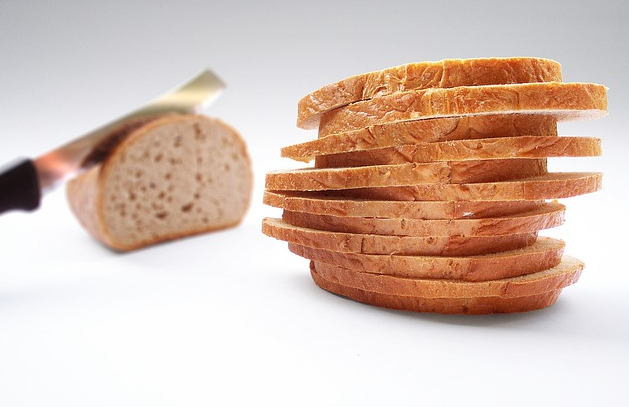
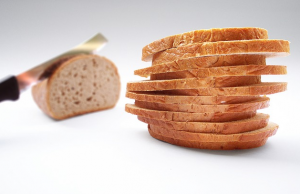

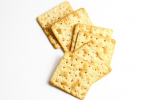
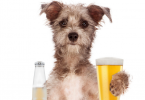
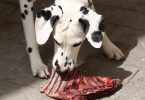
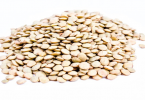
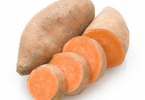
Leave a Comment